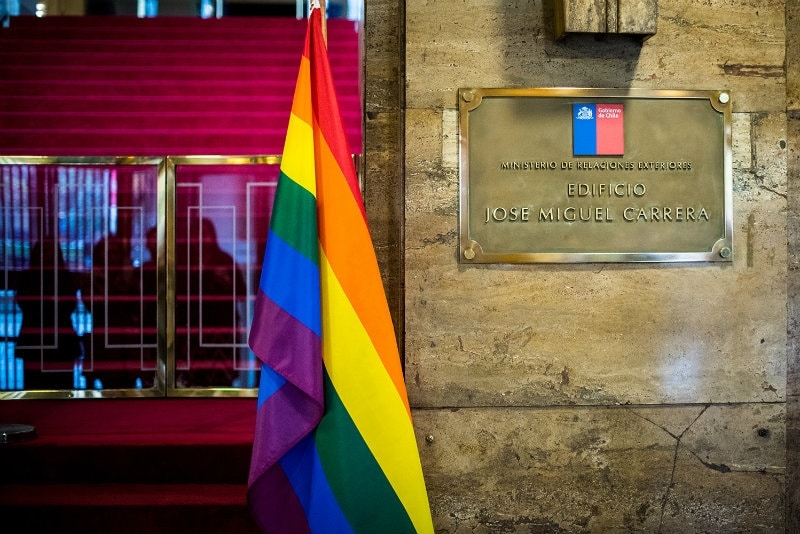
By Darius Zheng/Special to The Santiago Times
SANTIAGO – May 17 every year marks the International Day Against Homophobia, Biphobia and Transphobia (IDAHOT), conceived in commemoration of the declassification of homosexuality as a mental illness by the General Assembly of the World Health Organization (WHO) on the same day in 1990. Today, many countries around the world observe IDAHOT and some even plan activities to educate the public about the significance of this day.
Yesterday, several municipalities in Chile observed IDAHOT via hoisting the six-colour pride flag, a symbol that represents the lesbian, gay, bisexual, transgender and intersex (LGBTI) community worldwide. These municipalities included Valparaiso, Santiago, Concepcion, Macul and La Granja. For La Granja, it was also the first time the pride flag was hoisted up alongside the national flag of Chile.





Some municipalities, like Providencia, chose to observe IDAHOT earlier by hoisting the pride flag as early as on Monday, May 15.

In a press release to media and members of the public, the country’s Ministry of Foreign Affairs also reaffirmed its support for IDAHOT, and requested for states to “respect, protect and guarantee the rights and freedoms of all people without distinction”.
“Lesbian, gay, bisexual, trans and intersex (LGBTI) people continue to be victims of discrimination, harassment, ill-treatment, violence and murder, which constitute serious violations of their human rights and fundamental freedom.
“On this day, Chile reaffirms its unrestricted support and commitment to all those initiatives that seek to advance in promoting and respecting the human rights of LGBTI people fighting, violence and discrimination in all its forms.”
However, activists have claimed that the ministry remains ambivalent towards issues concerning LGBTI rights in the global arena. Slight more than three weeks ago, some of them had turned up in pink triangles outside the ministry protesting against the Chilean government’s lack of response to the setting up of gay concentration camps in Russia’s Chechnya.
As of now, Chile’s Foreign Affairs Minister Heraldo Muñoz has not spoken on this matter yet.
On the other hand, some protesters had also appeared at Plaza de Armas in downtown Santiago yesterday to protest against the hoisting of the pride flag. They held placards with wordings such as “Hombre + Mujer, Diseño Perfecto de Dios” (Man + Woman, Perfect Design of God), and also referred to the pride flag as a “bandera de la intolerance” (flag of intolerance) and that “it does not represent the views of all Chileans”.

Protesters holding up signs to rally against LGBTI rights. PHOTO/Instagram
When supporters of LGBTI equality tried to initiate a conversation with them, however, they were ignored. Protesters then continued to shout their slogans to other members of the public, while carrying a huge Chilean flag.
Chile’s Congress approved a bill recognizing civil unions for same-sex couples on January 28 in 2015, after which the bill was signed into law on April 13 and took effect on October 22 in the same year. Before this, the country had also passed the Zamudio Law in 2012 as an anti-discrimination measure, named after a Chilean gay man of the same name who died in March that year after being attacked by four neo-Nazi homophobes.
Same-sex marriage is currently not allowed in the country, but the government is currently reviewing three bills that have been proposed in the parliament to consider passing this law.



